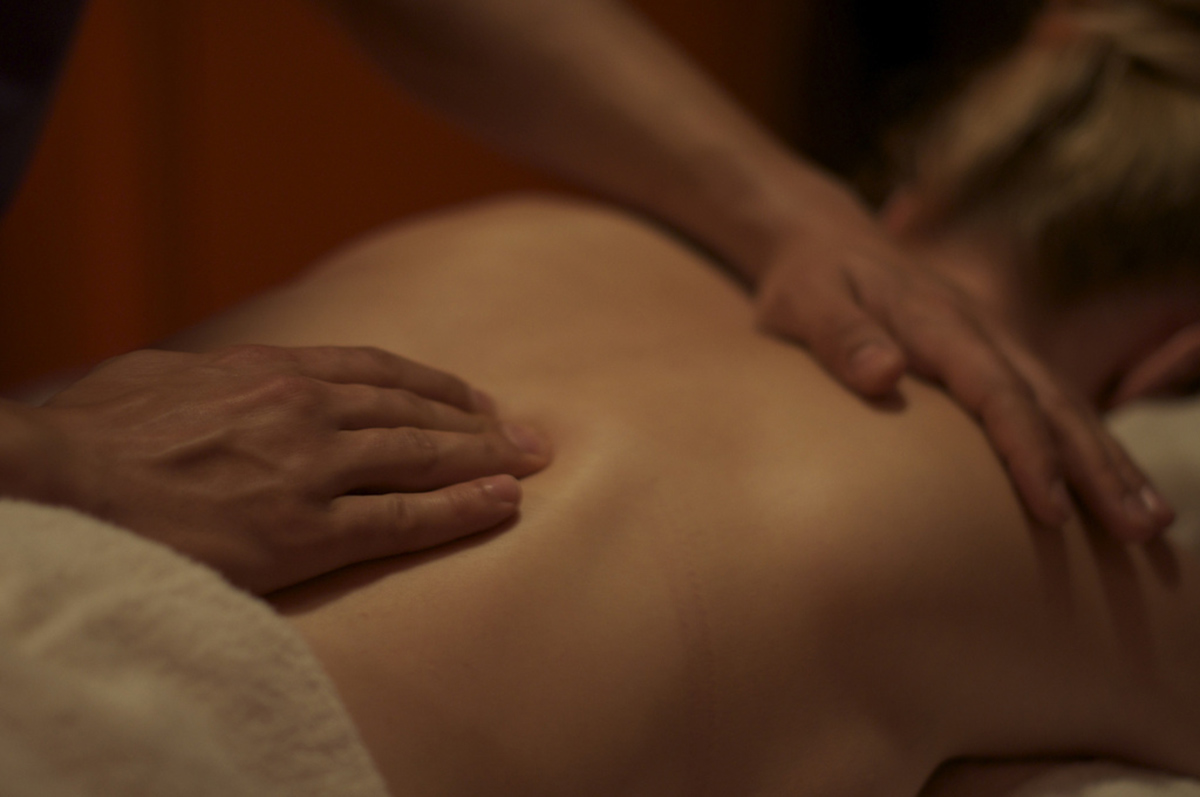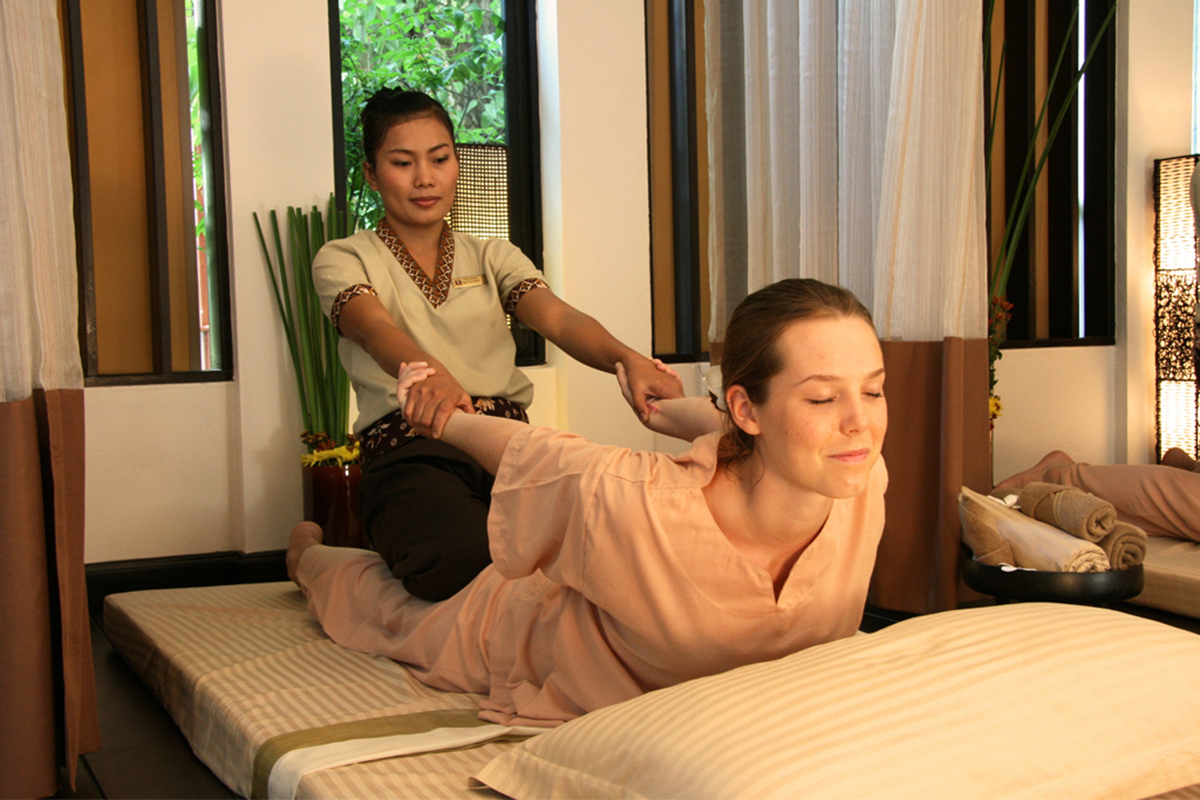Way back in the middle ages, medicine in the West was all about bleeding, cupping, purging (causing vomiting and defecation) and... well, actually, that's about it, apart from ingesting poisons and reading astrological charts. Renaissance medicine added some effective surgeries and a few drug treatments to the list, but it wasn't really until the early part of the twentieth century that seeing a doctor actually made you more likely to survive a serious illness. And as for optimising health? forget it. The very idea wasn't even addressed.

Maybe that's why anything that's actually pleasurable tends to get dismissed as not serious. We feel, instinctively, that anything gentle, progressive and pleasant can't be good for us. Cold baths and bleeding all round, please!
As a result, massage is regarded as something for people with no real problems: a kind of physical homeopathy, designed to address non-existent health problems in a non-effective manner.
The reality is very different. Massage isn't a single method and it's not designed for treating a single problem.
A serious sports massage is unlikely to be all that comfortable, for instance, while deep tissue massage can be excruciating and is certainly not a luxurious, millionaire-on-a-yacht treatment. Massage is a broad tent covering treatments that are intended to help deal with joint problems, muscle injuries and circulation problems as well as others that are intended to help improve mobility, enhance recovery and even, yes, just feel more relaxed.
So, With That Said, What Benefits Does Massage Provide?
1: Relaxation
All too often, we forget the link between relaxation and alertness. They're not opposites, they go together. After a ten-minute chair massage, study participants didn't just have lower blood pressure and reduced heart rate; they also solved maths problems faster and with fewer errors. Muscles relax and postural problems caused by too much rigidity in the musculoskeletal system can be corrected by even quite light, simple massage. And the relaxing effects aren't just physical. Massage can have many of the same effects as running — mental relaxation and euphoria can begin after ten or fifteen minutes and continue for several hours, with a generally enhanced sense of wellbeing continuing for much longer.
See Also: Can Massage Really Help Relieve Back Pain?
2: Pain Management
Many of us suffer from musculoskeletal pain, ranging from back, neck and joint pain from bad posture or overuse through sports injuries to arthritis. Even in cases where massage can't treat the cause, like arthritis (arthritis is a bone disease, and you can't really massage bones), it can help with the pain, says Tiffany Field, PhD. "We found that fibromyalgia sufferers slept for nearly an hour longer" at the end of a study than at the beginning, says Dr Field, which is important because deep sleep reduces the amount of 'substance P,' a pain neurotransmitter. Pain means less sleep, more substance P and more pain: a vicious cycle. "We were trying to use massage to break that cycle, and it was very effective."
Can Massage Really Help With Health Problems?
3: Anxiety and Depression? Massage Could Be (Part Of) The Answer
Massage can help with anxiety and depression by altering the balance of chemicals in the brain. Cortisol is associated with a whole host of stress responses both physical and mental, and massage appears to lower cortisol levels,while elevating dopamine and serotonin, which are responsible for the effort-reward cycle and for general wellbeing or "feeling good". As a result, massage can increase the amount of serotonin in circulation and reduce reliance on SSRIs or augment their effects in people with anxiety and depression.

4: Improve Sleep Quality
Massage can help promote healthy sleep. We need deep sleep for mental and physical regeneration: no-one is exactly sure why, but we do know that plenty of good sleep is a vital component of overall good health. Loss of sleep can cause cognitive deficit equivalent to being over the drink-drive limit, for instance, as well as impacting everything form mood to muscle elasticity. And lack of sleep is virtually an American epidemic, so massage could practically qualify as a public health intervention, albeit the most individualise,d hands-on version ever. It's thought to work by increasing the number of delta waves in the brain, though again, no-one knows why.
5: Improved Immunity
Like sleep quality, immunity is a function of general wellbeing and a deficit in immunity, a general background always-about-to-get-sick feeling, can be a sign that something's up behind the scenes or just a marker of poor general wellbeing. Massage can help improve immunity by both reducing stress and directly by increasing white blood cell count.
6: Reduce The Symptoms Of PMS
PMS is a distant myth to some; to others it's an all-too-intrusive reality that messes with minds and bodies for a week month or more. Massage can help minimise the effects of PMS, reducing feelings of bloating and mood swings.
7: Relief From Migraines
Migraines aren't headaches: believing that they are is a sure sign that you don't suffer from migraines. But their first, worst symptom is often a crushing headache with feelings of tightness or pressure, accompanied by vision disturbances and photophobia. Massage can reduce the number of migraines a sufferer has, as well as reducing the pain and duration of each one, and can be effective against stress headaches and cluster headaches too.
8: Beauty Benefits
As if being better-rested and in less pain wasn't likely to make you look better all by itself, massage can actually directly affect your looks by improving the flow of lymph to the facial tissues. According to Kimara Ahnert, a New York City skincare professional, "massage increases blood flow, which plumps up slack skin, encourages lymphatic drainage (the shuttling of toxins out and away from cells so that more nutrients can travel in) and adds vitality to a dull complexion and lacklustre hair."
9: Work With Other Treatments
Massage is a natural partner for hands-on health treatments like chiropractic, osteopathy or physical therapy. But it can also augment other treatments, including chemotherapy for cancer! No, massage can't cure cancer. But it does make the process of having chemo less awful by reducing the stress, pain and fatigue that accompanies it.
See Also: Soothing Sore Muscles: Massage Vs. Light Exercise
So there you have it. Massage does make you feel better, but it also makes you better: healthier, more relaxed and fitter.
- Photo courtesy of Nick J Webb via Flickr: www.flickr.com/photos/nickwebb/3968719105
- Photo courtesy of via Flickr: www.flickr.com/photos/taraangkorhotel/5918685202


Your thoughts on this